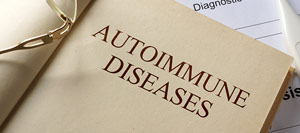Autoimmune Diseases and Toxic Chemical Exposure: Is There a Connection?
Since most autoimmune diseases are linked to our various hormones, most scientists believe that toxic chemicals may also trigger autoimmune diseases. Visit The Center for Occupational and Environmental Medicine (COEM) today to get comprehensive and specialized care. For more information, contact us today or schedule an appointment online. We are conveniently located at 7510 North Forest Drive North Charleston, SC 29420.


Table of Contents:
What is an autoimmune disease?
What is chemical sensitivity?
Common autoimmune disease types
Autoimmune disease symptoms
How toxins cause autoimmune disease
Autoimmune diseases and toxic chemical
3 surprisingly familiar toxins connected to autoimmune disease
Our daily environment presents many toxic chemicals that can affect the hormones in our bodies. Since most autoimmune diseases are linked to our various hormones, most scientists believe that toxic chemicals may also trigger autoimmune diseases.
It is a medical condition where your immune system attacks your body’s healthy cells by mistake. In ordinary healthy people, their immune system safeguards their body against foreign cells such as several harmful bacteria and viruses by attacking them. However, in persons with an autoimmune disease, their immune systems cannot differentiate between healthy cells and dangerous foreign cells. As a result, it attacks healthy cells by releasing autoantibodies.
Chemical sensitivity, or chemical intolerance (CI), is a condition where a person experiences various complex, unspecific, recurrent symptoms due to low-level chemical exposure, which most people can tolerate without any issues.
There are several autoimmune diseases identified to date. Some common autoimmune disorders include.
• Type 1 diabetes
• Hashimoto’s thyroiditis
• Myasthenia gravis
• Psoriasis/ psoriatic arthritis
• Rheumatoid arthritis (RA)
• Addison’s disease
• Graves’ disease
• Pernicious anemia
• Multiple sclerosis
• Sjögren’s syndrome
• Autoimmune vasculitis
• Celiac disease
• Inflammatory bowel disease
• Systemic lupus erythematosus (SLE)
Interestingly, the initial signs and indicators of several autoimmune diseases are very similar. Some of these include:
• Fatigue
• Inflammation And Redness
• Painful Muscles
• Low-Grade Fever
• Hair Loss
• Skin Rashes
• Trouble Focusing
• Feeling numb and getting tingling sensations in the hands and feet
Additionally, specific diseases can have distinct symptoms, e.g., type 1 diabetes can cause weight loss, extreme thirst, and fatigue. Certain autoimmune diseases like psoriasis have flare-ups, i.e., a time when the symptoms occur and remission periods when the symptoms subside.
Several environmental factors, including toxins, diet, stress, infections, and hormones, play a huge role in triggering autoimmune disease. Research suggests that only 30% of autoimmune diseases are due to genetics, and the remaining 70% are attributed to environmental causes described above.
Many studies also suggest that toxic chemicals we encounter daily can also affect our immune system at the cellular level, which can cause autoimmune diseases or worsen their symptoms.
The specific tissues or organs being attacked by an autoimmune disease varies by condition. For example, in rheumatoid arthritis, your joints are attacked, whereas, in Graves’ disease and Hashimoto’s disease, your thyroid gland is attacked. Multiple sclerosis impacts your nerves.
3 common toxins linked to autoimmune disease as per researchers include:
Heavy Metals
Heavy metals like lead, mercury, arsenic, etc., when present in elevated levels in our body, can cause autoimmune diseases, especially autoimmune thyroid conditions. Unfortunately, these substances are fairly common and can be found in various places, e.g., mercury is found in fish and dental fillings.
Mold and Mycotoxins
Your immune system and nervous system can also be attacked by the mold and the toxic gasses it releases, called mycotoxins. Despite ongoing research in this area, scientists believe that mold and mycotoxins can cause chronic inflammation and trigger autoimmunity.
Pesticides
Pesticides, which are usually used to grow our food, are also among the toxic chemicals that can lead to autoimmune diseases, especially lupus and rheumatoid arthritis.
If you are looking for expert autoimmune diseases and toxic chemical exposure treatment, then call us, or feel free to schedule an appointment with our expert doctors today! We serve patients from Charleston SC, Mount Pleasant SC, Summerville SC, North Charleston SC, Goose Creek SC, Ladson SC, Hanahan SC, James Island SC, John’s Island SC, Daniel Island SC, West Ashley SC, Moncks Corner SC, Sullivans Island SC, Folly Beach SC, Isle of Palms SC and all of South Carolina, Nationally, and Internationally. Patients routinely fly into Charleston to be evaluated by COEM and to enjoy this beautiful city, which is a Condé Nast and Travel and Leisure Top Domestic and International Tourist Destination.










